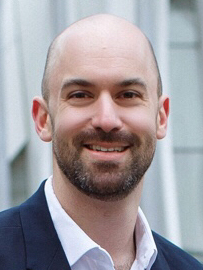Salvage of locally recurrent breast cancer with repeat breast conservation using 45 Gy hyperfractionated partial breast re-irradiation Journal Article
| Authors: | Chen, I.; Botty Van den Bruele, A. M.; Gillespie, E. F.; Mueller, B. A.; Xu, A. J.; Cuaron, J.; Khan, A. J.; McCormick, B.; Cahlon, O.; Powell, S. N.; Cody, H.; Braunstein, L. Z. |
| Article Title: | Salvage of locally recurrent breast cancer with repeat breast conservation using 45 Gy hyperfractionated partial breast re-irradiation |
| Abstract: | Purpose: Mastectomy has long been the preferred approach for local salvage of recurrent breast cancer following breast-conservation therapy (BCT). Growing interest in avoiding mastectomy prompted RTOG 1014, a landmark phase two study demonstrating the feasibility of repeat BCT using a novel radiotherapy (RT) regimen (i.e., 45 Gy administered in 30 fractions of 1.5 Gy twice-daily to the partial breast, “rePBI”). We adopted this regimen as our institutional standard and report our observations regarding the safety and efficacy of rePBI as salvage therapy. Methods: All patients at our institution who underwent repeat BCT and subsequently received rePBI from 2011 to 2019 were identified. Clinicopathologic features and treatment characteristics for both primary breast cancers and recurrences were collected, as were rates of subsequent recurrence and treatment-associated toxicities. Results: The cohort included 34 patients with a median age of 65.8 (46.2–78.2) at the time of rePBI. At a median follow-up of 23.5 months, there were two subsequent locoregional recurrences (2-year local control rate 97%). There was no grade ≥ 3 toxicity. The most common acute toxicity (< 3 months) was radiation dermatitis (100%), and common grade 1–2 late toxicities (> 3 months) included fibrosis in 14 (41%), breast asymmetry in 12 (35%), and chest wall pain in 11 (32%). Conclusions: Repeat breast conservation using the hyperfractionated partial breast RT regimen defined by RTOG 1014 (45 Gy administered in 30 1.5 Gy twice-daily fractions) appears effective and well tolerated. No grade 3 or higher toxicities were observed and local control was excellent. Longer term follow-up among larger cohorts will define whether salvage mastectomy should remain the preferred standard. © 2021, The Author(s), under exclusive licence to Springer Science+Business Media, LLC, part of Springer Nature. |
| Keywords: | breast cancer; radiotherapy; local therapy; salvage; breast conservation; local recurrence |
| Journal Title: | Breast Cancer Research and Treatment |
| Volume: | 188 |
| Issue: | 2 |
| ISSN: | 0167-6806 |
| Publisher: | Springer |
| Date Published: | 2021-07-01 |
| Start Page: | 409 |
| End Page: | 414 |
| Language: | English |
| DOI: | 10.1007/s10549-021-06206-7 |
| PUBMED: | 33770311 |
| PROVIDER: | scopus |
| DOI/URL: | |
| Notes: | Article -- Export Date: 2 August 2021 -- Source: Scopus |
Altmetric
Citation Impact
BMJ Impact Analytics
MSK Authors
Related MSK Work














